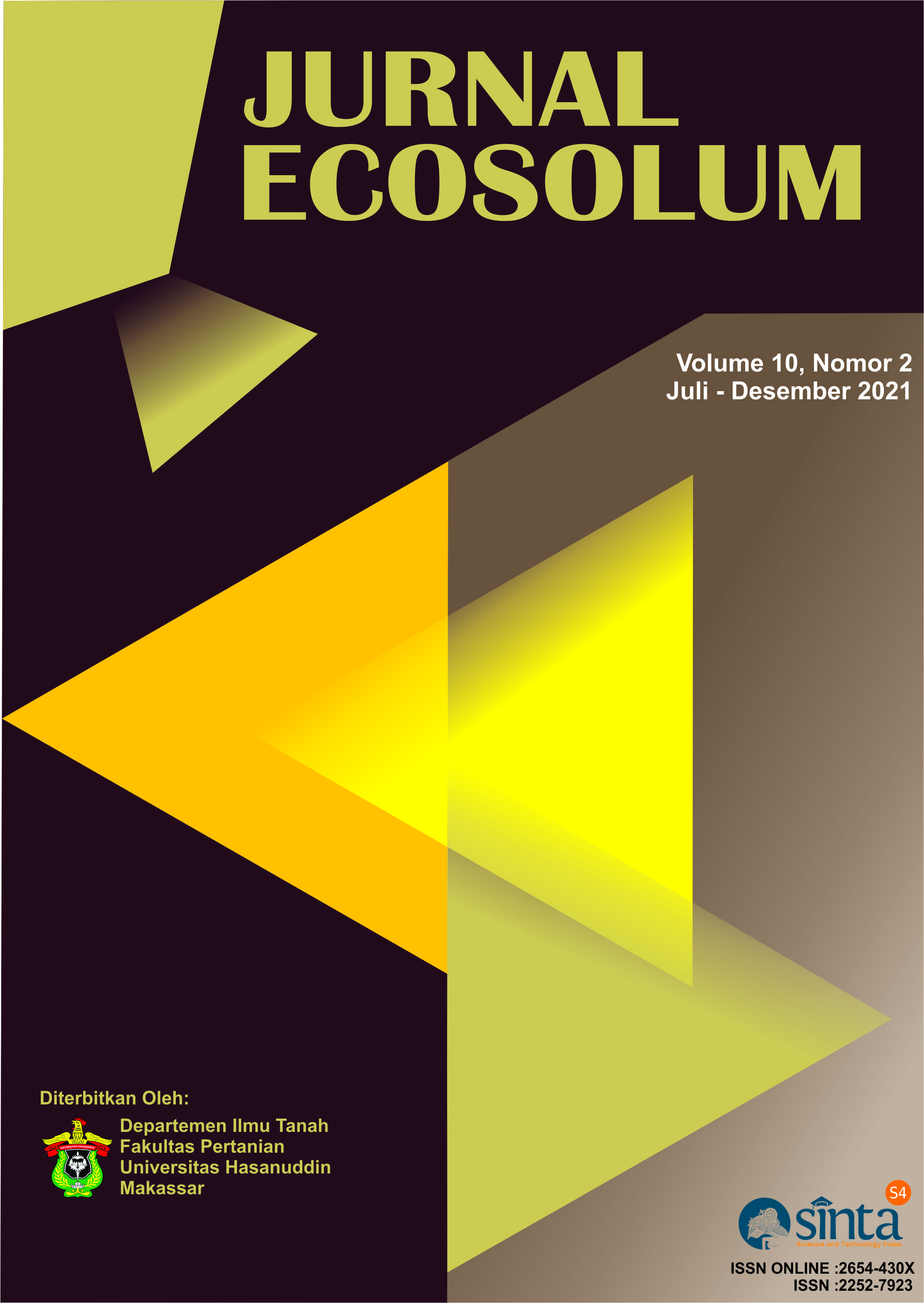PENGARUH PENGELOLAAN AIR TERHADAP FLUKS METANA DAN SIFAT KIMIA TANAH SULFAT MASAM
DOI:
https://doi.org/10.20956/ecosolum.v10i2.18293Keywords:
emission, tidal land, paddy field, soil, inundationAbstract
One of the main factors that play an essential role in controlling CH4 flux in wetlands is water management through the formation of aerobic and anaerobic soil conditions. Rice plants act as an intermediary medium for the CH4 flux release from the soil to the atmosphere through aerenchyma and trigger CH4 production. Therefore, this study had designed to study the effect of inundation and rice planting on CH4 emissions and the chemical properties of acid sulfate soil. The study had arranged by a randomized block design with two factors, i.e., inundation (not flooded/ponding water layer of 0.5 cm and flooded/ ponding water layer of 5 cm) and rice planting (not planted and planted with rice). The CH4 flux in the flooded treatment was greater than that of the not flooded. Consumption of CH4 occurs in a not flooded condition which had indicated by a negative flux value. Rice cultivation triggered a large CH4 flux. Soil pH and soluble Fe were higher in flooded conditions, while soil Eh had lower.
Additional Files
Published
How to Cite
Issue
Section
License

This work is licensed under a Creative Commons Attribution-NonCommercial 4.0 International License.












